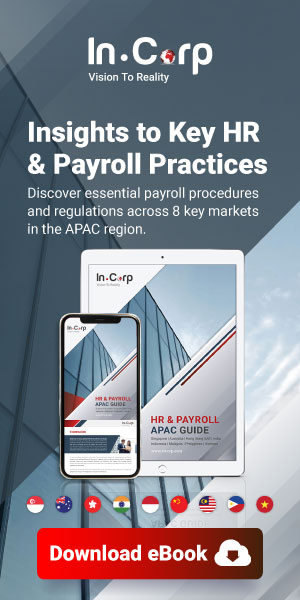Singapore having been ranked among the top 3 economies in the ‘Ease of Doing Business’ rankings by the World Bank for the past 12 consecutive years, is keen on keeping the island state’s reputation as a pro-business economy. It continuously reviews and revises the regulatory framework to remain relevant to the evolving needs of business and the enterprise ecosystem. Its bid to stay competitive has resulted in the Singapore incorporated businesses having an undefeated edge over their counterparts in terms of lower compliance cost and taxes. Keen on fostering a pro-business regulatory framework, the Accounting and Corporate Regulatory Authority (ACRA), introduced the concept of ‘small company’ that is exempted from annual audit. The small company concept came into effect on 1 July 2015.
The Concept of “Small Company”
A Singapore incorporated private company that fulfills any two of the following requirements in each of the immediate past two financial years (FYs) will qualify as a small company:
- Total revenue not more than S$10 million;
- Total assets of not more than S$10 million; or
- The number of employees not more than 50.
For the purpose of this provision, the assets and revenue of the company are determined on the basis of Singapore financial reporting standards (SFRS) and the full-time workers of the company are considered as employees.
For a company which is part of a group to qualify as a small company exempted from audit, the entire group must be a small group on a consolidated basis. Accordingly, the group on a consolidated basis must fulfill two of the three criteria in each of the immediate two financial years.
Advantage
Companies that qualify as a small company are exempted from auditing their financial statements. Thus, they are also relieved of the obligation to provide audited accounts to the directors and present the same at the Annual General Meeting (AGM). The exemption has reduced the compliance cost of small companies and has also brought the regulatory landscape in line with other key jurisdictions such as the United Kingdom and Australia.
Disqualification
A company that is qualified as a small company will continue to remain as a small company. However it will be disqualified,
- if at any time during the financial year it ceases to be a private company; or,
- if it does not meet at least two of the three quantitative criteria for the immediate past two consecutive FYs.
Likewise, a group that has qualified as a small group will continue as a small group in the subsequent financial years until it fails to meet at least two of the three quantitative criteria for the immediate past two consecutive FYs.
Application of the Provision
The newly incorporated companies will not be able to meet the qualifying criteria for the immediate past two FYs. So, the regulation provides for a newly incorporated company (incorporated on or after 1 July 2015), to qualify as a small company if it fulfills two of the three criteria in its first or second year after its incorporation.
In the case of existing companies, as a transitional provision, the companies qualify for audit exemption if they met the quantitative criteria in the first or second FY after the effective date of small company criteria, that is, 1 July 2015.
The applicability of the provision during the transition for existing companies is explained with three potential scenarios.
| Scenario A
The company meets the quantitative criteria in FY 2015 and 2016
The company is a small company in FY 2016
|
| Financial Year |
Meets quantitative Criteria |
Qualifies as Small Company |
Remarks |
| FY2017 |
Yes |
Yes |
The company qualified as a small company already and remains qualified. |
| FY2018 |
No |
Yes |
Though the company failed to meet the criteria in the current FY, it has remained a small company in the two immediately preceding FYs and remains qualified. It will disqualify only if it fails to meet the criteria in two consecutive preceding FYs. |
| FY2019 |
Yes |
Yes |
The company continues to remain qualified as a small company as it failed to meet the criteria in only one of the preceding FYs. |
| FY2020 |
No |
Yes |
Though it failed to meet the criteria in the current FY, it will retain its small company status as it failed to meet the criteria in only one of the preceding FYs. |
| FY2021 |
No |
Yes |
Though it failed to meet the criteria in the current FY, it will retain its small company status as it failed to meet the criteria in only one of the preceding FYs. |
| FY2022 |
Yes |
No |
Though it meets the criteria, it is disqualified as it has failed to meet the criteria in two consecutive preceding years. |
| Scenario B
The company does not meet the quantitative criteria in FY 2015 and 2016
The company is not a small company in FY 2016 |
| Financial Year |
Meets quantitative Criteria |
Qualifies as Small Company |
Remarks |
| FY2017 |
Yes |
No |
The company is not qualified as a small company already and remains disqualified as it does not meet the criteria in two consecutive preceding years. |
| FY2018 |
Yes |
No |
Though the company meets the criteria in the current FY, it has failed to meet the criteria in the two immediately preceding FYs and hence remains disqualified. |
| FY2019 |
Yes |
Yes |
The company will qualify as a small company as it has met the criteria in two consecutive preceding FYs. |
| FY2020 |
No |
Yes |
Though it failed to meet the criteria in the current FY, it will retain its small company status as it fulfilled the criteria in two consecutive preceding FYs. |
| FY2021 |
No |
Yes |
The company will qualify as a small company as it failed to meet the criteria in only one of the preceding FYs. |
| FY2022 |
Yes |
No |
Though it meets the criteria in the current year, it is disqualified as it has failed to meet the criteria in two consecutive preceding years. |
| Scenario C
The company meets the quantitative criteria in FY 2015 and 2016
The company is a small company in FY 2016 |
| Financial Year |
Meets quantitative Criteria |
Qualifies as Small Company |
Remarks |
| FY2017 |
No |
Yes |
The company is qualified as a small company already and remains qualified despite not meeting the criteria in the current year. |
| FY2018 |
No |
Yes |
Though the company does not meet the criteria in the current FY, it has failed to meet the criteria in only one of the two immediately preceding FYs and hence remains qualified. |
| FY2019 |
Yes |
No |
Despite meeting the criteria in the current year, the company will not qualify as a small company as it has not met the criteria in the two consecutive preceding FYs. |
| FY2020 |
Yes |
No |
It will not qualify as a small company as it met the criteria in only one of the two consecutive preceding FYs. |
| FY2021 |
Yes |
Yes |
The company will qualify as a small company. |
| FY2022 |
Yes |
Yes |
The company remains qualified as a small company. |
Key Considerations
- Audit exemption does not obviate the obligation of companies to maintain proper accounting records. A small company is still required to prepare their unaudited financial statements. If the shareholders with minimum 5% voting rights demand the company to prepare audited financial statements, the company must prepare an audited financial statement.
- Branches of foreign companies would not qualify for the audit exemption privilege enjoyed by a locally incorporated company that qualifies as a small company.
- Notably, some companies offer different classes of shares that comprise different voting rights. So, the empowerment of the shareholders having at least 5% voting rights to demand audited financial statements may have varied impact on such companies. Therefore, it is best to obtain expert opinion from professional corporate service providers.
- It is common for Singapore incorporated companies to have foreign holding companies. In such cases the, the consolidated revenue and assets are to be taken into account. However, it is best to seek the advice of professional corporate service providers in complex cases.
- In general, companies are required to hold the AGMs within six months from the Financial Year End, and the audited accounts must be presented to the directors at least two weeks prior to the AGM. For companies that are not sure about their small company status and audit exemption, it is best to seek professional advice.
Get the preparation of your company’s unaudited report right and in compliance with all statutory requirements.
About the Author
InCorp's content team includes talented copywriters from our regional group and globally. We contribute informative, thought leadership, and market-trending articles to guide aspiring business entrepreneurs to a higher level across the Asia-Pacific region.
More on Singapore Guides


